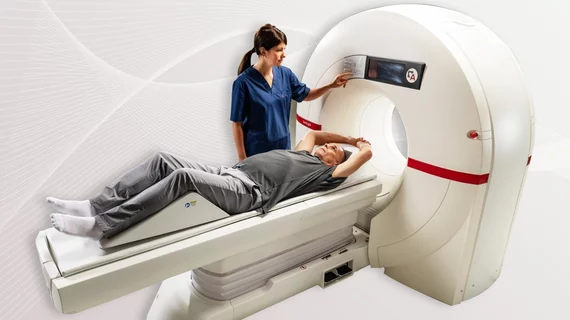FDA clears AI-powered image reconstruction technology for cardiac CT scanners
Arineta Cardio Imaging, a healthcare company based in Israel, gained clearance from the U.S. Food and Drug Administration (FDA) for the deep learning image reconstruction (DLIR) technology used in its SpotLight cardiovascular CT scanners.
DLIR uses an advanced artificial intelligence (AI) algorithm trained on more than 3 billion data points to reduce image noise and improve the overall quality of any given CT scan. It is available on Arineta’s full line of second-generation CT scanners, including the company’s flagship product, the FDA-cleared SpotLight Duo cardio-thoracic CT system.
Cardiac CT gained a significant amount of attention in October 2021, when the American College of Cardiology (ACC) and American Heart Association (AHA) collaborated on new guidelines that gave the modality the highest possible recommendation for the evaluation of chest pain. This directly led to a rise in popularity for cardiac CT among clinicians and vendors alike, creating an opportunity for companies such as Arineta to reach more patients with their CT offerings.
“Today, fewer than 5% of U.S. patients that need cardiac CT are getting appropriately scanned due to lack of access at point-of-care,” Arineta CEO Scott Schubert said in a statement. “This FDA clearance continues Arineta’s vision and leadership to make cardiac CT the front-line imaging test for patients with chest pain and suspected cardiovascular disease, as recommended by the ACC and AHA 2021 guidelines.”
“We have used Arineta cardiac CT systems for several years, and they provide the highest quality cardiac CT clinical images for our practice,” Matthew Budoff, MD, a preventive cardiologist with the David Geffen School of Medicine at the University of California Los Angeles, added in the same statement.

